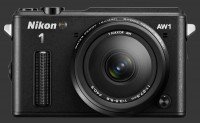Weather-Sealed Mirrorless Differences
Primary Weatherproof Differences
Weather-sealed mirrorless cameras offer protection against the elements to varying degrees. They are all dustproof and moisture-resistant. They can also handle splashing from any direction, so will keep working in rain or snow, as long as a weather-sealed lens is attached. This is crucial since a weatherpoof camera with a lens that is not, will not be weatherpoof because water and dust can enter through the lens-mount.

Weather Resistance
Cold is a problem for electronics in general and mirrorless cameras are not exempted. All digital cameras remain fully functional at temperatures above 0°C (32°F) although battery-life gets shorter as temperatures drop. Among weather-sealed mirrorless cameras, all but those from Panasonic, are freezeproof down to -10°C (14°F). Those freezeproof models will keep operating reliably below freezing. Below their respective minimal temperature, a digital camera does not simply stop working. Instead, battery-life becomes very limited and displays (EVF & LCD) which are generally made of liquid-crystals become unresponsive. Too much time spent below freezing or -10°C for freezeproof cameras, may eventually cause internal damage to the battery. Generally though, digital cameras mostly return to normal once warmed up.
Image Sensors
Mirrorless cameras compared here do not all have the same sensor-size. Within a generation, larger sensors nearly always produce higher image-quality than smaller ones. This is simply a matter of physics since larger sensors receive more light. They are therefore more sensitive and capable of capturing more dynamic-range.



There are currently 3 sensor sizes used by these 7 contenders. Fuji cameras offer the largest sensors with a 3:2 aspect-ratio and 1.5X crop-factor. Olympus and Panasonic mirrorless share the Micro Four-Thirds platform which uses a 4:3 aspect-ratio sensor with 2X crop-factor while the Nikon 1 system is built around a 3:2 aspect-ratio 1" sensor having a 2.7X crop-factor.
On the right, you can see the physical size of all these sensors superimposed. While their size looks similar linearly, what matter is the surface area. A Four-Thirds sensor has 93% more area than a 1" one and an APS-C senor has 64% more.
The most common resolution among these cameras is 16 megapixels. The Panasonic GX8 is the only model to offer a higher resolution of 20 megapixels, while the Nikon 1 AW1 has a slightly lower-resolution of 14 megapixels. Possible print-sizes are therefore similar before image-noise starts affecting details.
Image Stabilization
The third most significant difference between these cameras is how they are stabilized. Fuji and Nikon cameras entirely rely on optical image-stabilization performed by the lens. This is rather restrictive since there are currently only two stabilized weatherproof lenses for the Fuji X-mount and none at all for the Nikon 1-mount.
Olympus took the opposite approach, producing mirrorless cameras with built-in image-stabilization, thus automatically granting stabilization to all weather-sealed M.Zuiko. With up to 5-axis of stabilization, OM-D cameras can effectively stabilize any lens. This works regardless of brand and even through a lens adapter for legacy mounts, including weatherproof Zuiko lenses using a weatherproof adapter. No other such adapter is weather-sealed at this time.

Interestingly, Panasonic took both approaches at once. Their GH4 does not offer built-in stabilization, while their recently-reviewed GX8 does. Not only does the Panasonic GX8 supports stabilized lenses too, it also can combine sensor-shift and optical-stabilization for improved efficiency. This also allows the GX8 to take full advantage of Olympus Micro Four-Thirds lenses since they are all compatible across the system.
NOTE All links above perform a live-search over Neocamera's lens database, so may show more results as new offerings get released.
Viewfinder & Hot-Shoe
This major difference is the simplest to explain. The Nikon 1 AW1 neither has an EVF nor a hot-shoe. Each other mirrorless featured in this article has a high-resolution 2.4 megapixels EVF with Eye-Start sensor and a standard hot-shoe. All these viewfinders show 100% coverage and are relatively large, being either 0.5" or 0.44" units and having magnification between 0.67X and 0.77X. These two features are crucial for professional use.
| Table 3 - Weather-Sealed Mirrorless Major Differences | ||||||
|---|---|---|---|---|---|---|
| Camera | Fuji X-T1 [Graphite] |
Nikon 1 AW | Olympus E-M1 |
Olympus E-M5 Mark II |
Panasonic GH4 |
Panasonic GX8 |
| Weather Protection |
Splashproof Freezeproof |
Waterproof Freezeproof |
Splashproof Freezeproof |
Splashproof Freezeproof |
Splashproof | Splashproof |
| Sensor Size FLM |
APS-C 1.5X |
1" 2.7X |
Four-Thirds 2X |
Four-Thirds 2X |
Four-Thirds 2X |
Four-Thirds 2X |
| Resolution | 16 MP | 14 MP | 16 MP | 16 MP | 16 MP | 20 MP |
| Max ISO | 51200 | 6400 | 25600 | 25600 | 25600 | 25600 |
| Stabilization | No | No | 5-Axis | 5-Axis | No | Dual |
| Autofocus | 49-Point Phase-Detect |
135-Point Phase-Detect |
37-Point Phase-Detect |
800-Point Contrast-Detect |
49-Point Contrast-Detect |
49-Point Contrast-Detect |
| EVF Size Magnification |
0.5" 0.77X |
No | 0.5" 0.74X |
0.5" 0.74X |
0.5" 0.67X |
0.44" 0.77X |
| Hot-Shoe | Yes | No | Yes | Yes | Yes | Yes |
| Video | 1080p | 1080p | 1080p | 1080p | Cinema 4K | 4K |
Continue to page 3 to read about secondary differences between these weatherproof mirrorless cameras.
Please Support Neocamera
All information on Neocamera is provided free of charge yet running this website is a huge endeavor. Purchases made via affiliate links found throughout the site help keep it running and up-to-date. There is no additional cost to you, so please consider buying via these links to our affilates:
If you found any information on this site valuable and did not purchase via our affiliate links, please considering donating via PayPal:
Any amount will be greatly appreaciated. Thank you for your support!
Waterproof Mirrorless

The Nikon 1 AW1
Nikon 1 AW1 is unique in being the only waterproof interchangeable lens digital camera. No other mirrorless is waterproof and no DSLR has even been waterproof either. The AW1 is also freezeproof and shockproof:
- Completely splashproof, weatherproof and dustproof.
- Waterproof to a depth of 15m for up to 1 hour.
- Freezeproof to -10C.
- Shockproof to drops of 2m.
To achieve such ruggedness, Nikon made a camera without any internal moving parts. Its shutter is electronic, there is no stabilization or dust-reduction mechanism and it is obviously mirrorless. Externally, it has very few buttons and a popup flash. See the Nikon 1 AW1 Construction page for full details.
This mirrorless requires a waterproof lens in order to go underwater. The design of these lenses is such that they will not mount on previous Nikon 1 mirrorless cameras. There are no strictly weatherproof lenses in that system but such lenses would not be suitable for underwater use.
Uniquely in this group of mirrorless digital cameras, the 1 AW1 has a built-in GPS system which records position, elevation and orientation thanks a built-in Digital Compass..
Updates
2025.01.18

Fujifilm GFX 2025 Lens Roundup
Lens Review roundup of Fujifilm GFX Medium-Format lenses. Quality, performance and handling of the GF20-35mm F/4R WR, GF30mm F/3.5 Tilt-Shift and the GF55mm F/1.7.
2024.11.18

Best 2024 Photography Gifts for Every Budget
Great gifts for photographers and photo enthusiasts selected for every budget among the best products of 2024.
2024.08.07

Eye Protection Tips for Professional Photographers
The four main considerations for professional photographers regarding eyewear.
2024.07.14

Fujifilm X100VI Review
Flagship fixed-lens compact digital camera with a 40 MP sensor and Image-Stabilization, a first for the series. Retro design featuring dual control-dials, plus direct ISO, Shutter-Speed and EC dials. Its hybrid viewfinder can switch between EVF and OVF mode.
2024.05.09

Fujifilm GFX100 II Review
Flagship 102 Megapixels Medium-Format Mirrorless Digital Camera with 8-Stop 5-Axis IBIS, 8 FPS Drive, 8K Video and 400 MP Super-Resolution capture in a weatherproof and freezeproof body with dual control-dials and dual memory-card slots.
2024.04.03

Fujifilm X-T5 Review
Newest Fujifilm flagship boasting a 40 MP APS-C sensor, 5-axis IBIS with 7-stop efficiency, 15 FPS continuous drive, 6.2K Video capture, dual control-dials and dual SDXC UHS-II slots in a sturdy weatherproof and freezeproof body.
2023.11.20

Best Digital Cameras of 2023
Find out which are the Best Digital Cameras of 2023. All the new Mirrorless Digital Cameras from entry-level to high-end professional.
2023.07.10

Fujifilm X-H2 Review
40 Megapixels APS-C Hybrid Mirrorless Digital Camera with 7-stop IBIS. Fastest shutter ever and 8K video capture. Large builtin EVF with 0.8X magnification and 5.8 MP, plus an Eye-Start Sensor. Packed with features and large number of controls in a weatherproof and freezeproof body.
2023.05.07

Sony FE 20-70mm F/4G Review
Review of the unique Sony FE 20-70mm F/4G lens. The optical zoom of this lens spans ultra-wide-angle and medium focal-length coverage, making it one of the most versatile Full-Frame lenses on the market.
2023.01.15

Huion Inspiroy Dial 2 Review
Review of the Huion Inspiroy Dial 2 tablet, a medium sized drawing surface with dual dials and customizable buttons. Connects via USB-C or Bluetooth 5.0 with Windows, Linux and Android support.
2022.12.08

How to Pack for a Photo Trip
Find out how to pack for a travel photography trip, carry your gear safely while meeting airline regulations.
2022.11.13

Best Digital Cameras of 2022
The best digital cameras of 2022. A short list of the most outstanding models in their respective categories. Choose one for yourself or as a gift.
2025.01.18
2024.11.18
2024.08.07
2024.07.14
2024.05.09
2024.04.03
2023.11.20
2023.07.10
2023.05.07
2023.01.15
2022.12.08
2022.11.13
NEWS
2025.03.26

Canon Launches Pair of Cameras and Lenses
Digital Camera ○ Lens
2025.03.25

Venus Optics Launches Vista Vision Cine Lenses
Lens
2025.03.24

Think Tank Photo Walker Pro
Bag
2025.03.20

Fujifilm First Fixed Lens Medium-Format Camera
Digital Camera
2025.02.26

Sony Launches Two New Lenses at CP+2025
Lens
2025.02.25

CP+2025 Showcases Numerous Launches
Digital Camera ○ Lens
2025.02.13

Nikon Launches 5X Full-Frame Power-Zoom Lens
Lens
2025.02.05

Nikon Refreshes Flagship Ultra-Zoom
Digital Camera
2025.02.05

Nikon Launches Ultra-Bright 35mm F/1.2 Prime Lens
Lens
2025.01.21

Fujifilm Evolves INSTAX Wide
Digital Camera
2025.01.16

Leica Launches SL3-S
Digital Camera
2025.01.14

Think Tank Photo Launches Dark Light Tactical Backpacks
Bag














